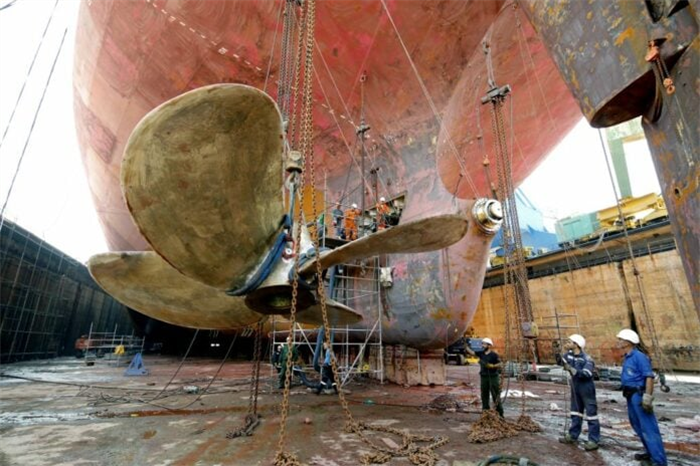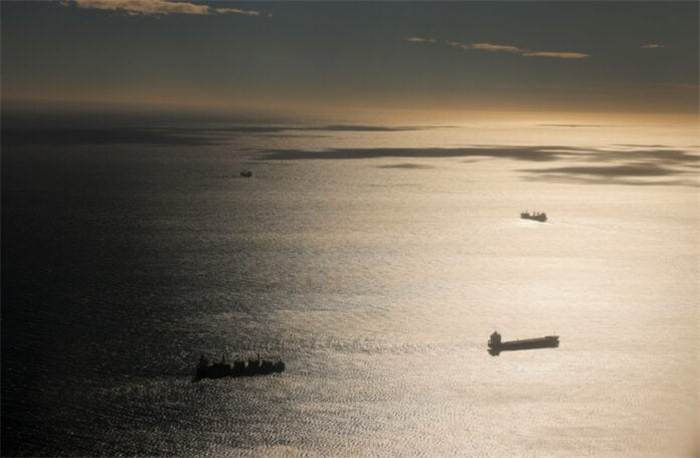The revival of Greece's shipbuilding sector
By Antonis Tsimplakis

The Greek shipbuilding industry is undergoing a widespread refurbishment in 2025. However, it faces new challenges and opportunities, as shipping has already begun its journey towards the green transition, in view of the new environmental regulations.
Naftemporiki estimated that the leading role of Greek shipping internationally enables the great return of the shipbuilding industry in our country.
Greek shipowners hold a leading role in the global order book, with over 500 ships under construction, most of which have the ability to use alternative fuels.
The shipbuilding industry, which is the cornerstone of global trade and maritime security, is now undergoing new transformations.
The market is developing rapidly, following technological developments and changes in the economy and politics while meeting the need for strict safety protocols.
Stricter environmental regulations are driving the adoption of greener ship designs, while digital innovations are boosting efficiency and safety.
Technological innovation continues to be a critical factor in the shipbuilding industry. The adoption of automation, digitalization and advanced manufacturing techniques is revolutionizing shipbuilding processes.
Now, innovative ship technologies that incorporate artificial intelligence and the internet are enhancing operational efficiency, safety and sustainability.
However, the industry continues to grapple with labor disputes, supply chain disruptions and a continuing need for skilled labor due to the use of new, alternative fuels and technology.
The path towards the green transition in Greek shipyards will require synergies and specialization, as the energy upgrade of the existing fleet and the construction of new green ships, not only for Greek coastal shipping but also for other sectors, such as tugboats and cruises, will be among the immediate priorities.
Representatives of the sector have asked the EU for a comprehensive framework of support and modernization of EU law, so that the shipyards of EU member states can be effectively protected from unfair competition.
They have pointed out that any public funding should bring tangible benefits to European shipyards, but also to the manufacturers of marine equipment that are now considered essential for the decarbonization of the European maritime sector.
The shipping sector's challenges in 2025

Shipping is facing significant challenges, also affecting the Greek shipbuilding industry, which for many decades has been at the top both in terms of the number of ships and total tonnage and in the number of orders for new ships in shipyards around the world.
The unstable geopolitical environment is expected to continue in 2025, with regional conflicts and rapid growth of the "shadow" fleet, while US President-elect Donald Trump promised to make sweeping changes after taking office on January 20. The new regulatory framework for the decarbonization of the sector is causing new problems in the industry while artificial intelligence is playing an increasingly active role, causing both awe and concern.
"Shadow" fleet
According to data, the "shadow" fleet continues to grow by 10 tankers per month and its total number amounts to a total of 850 ships, which represent 9.1% of the world tanker fleet.
Regarding the "Trump 2.0" era, based on what the newly elected US president has said during his election campaign, but also based on what had happened during his previous term, any interventions of imposing tariffs on China and Europe will result in a reduction in the available cargo for sea transport.
If this does happen, Naftemporiki predicts that over 3 trillion dollars worth of American imports will be affected, triggering trade retaliation and broader trade wars.
At the same time, the new environmental regulations that are gradually being implemented will result in significant burdens on the operating costs of ships, with the burden being passed on to the end consumer.
From May 1 2025, the Mediterranean will be designated an "ECA Emission Control Area," meaning that many ships that do not have exhaust gas cleaning systems (scrubbers) or alternative fuel will have to use more expensive low-sulfur fuel with a sulphur content of up to 0.1%, up from 0.5% today.
The FuelEU regulation will also come into force from 2025, under which ships will have to reduce emissions by up to 2% in 2025, up to 6% in 2030 and reach a reduction of 80%-100% by 2050. Finally, in the past two years, the planet has witnessed a real revolution in the field of artificial intelligence, with the development of technologies that have now become tools for use by millions of people. The shipping industry could not be left out and dozens of projects have already been announced, which are expected to transform the sector by 2025, from real-time cargo monitoring to autonomous navigation.
(Editor: liaoyifan )


